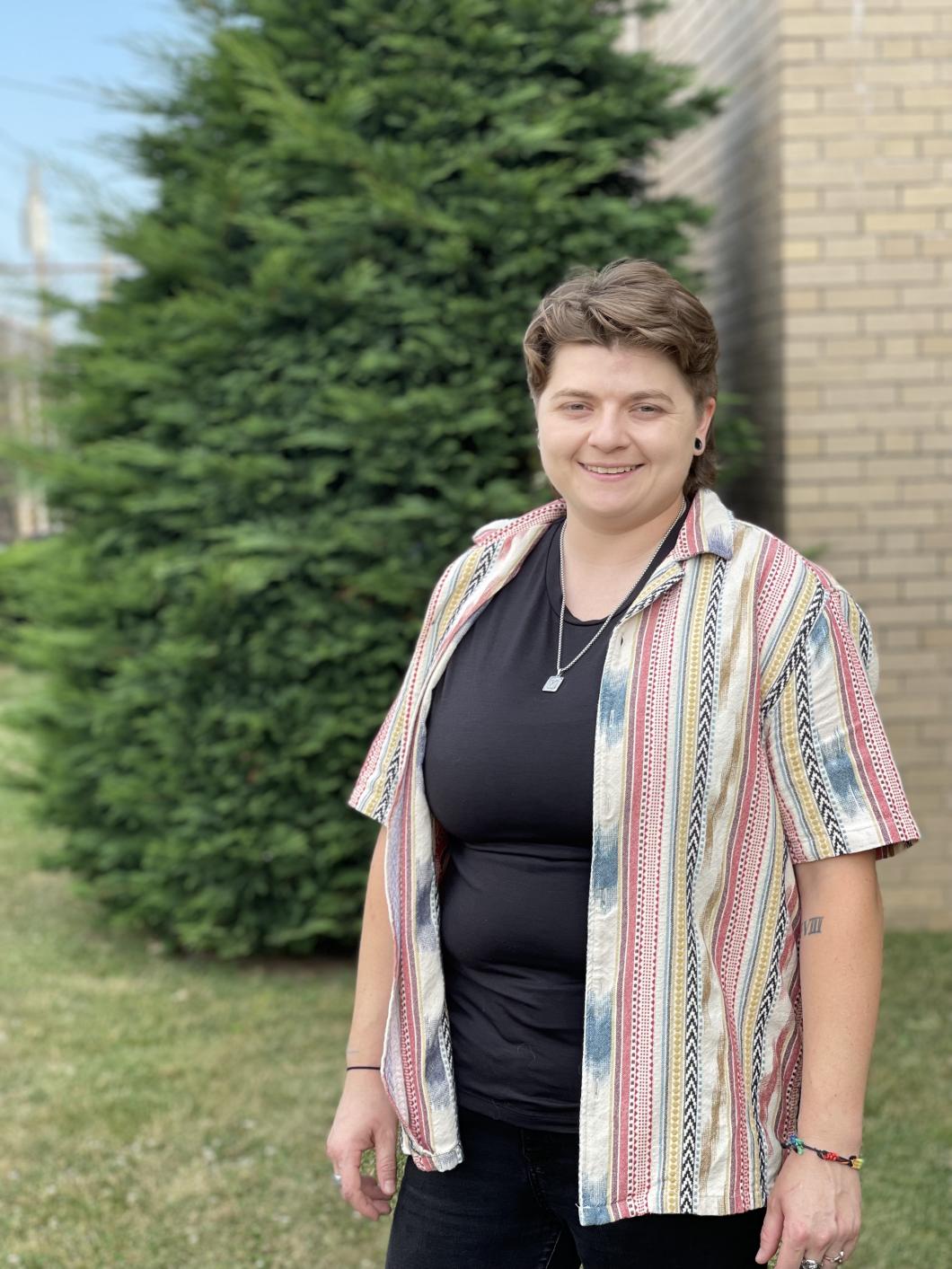
Jesse McDade works as an Assistant Behavior Intervention Specialists at a Flatbush home in Brooklyn. They're passionate about helping the people they support feel like they belong. Many people with intellectual and developmental disabilities (I/DD) have been treated like outsiders, but McDade wants to empower them to find their community and embrace their sexuality with pride.
“As someone who identifies as nonbinary and gay, it is important for me to show the people we support the community they are part of because they deserve a chance to find it, learn about it, and not feel so alone,” said McDade.
McDade started working at YAI four years ago and said taking the Double Outsiders YAI training in 2022 was eye-opening for them to better understand the challenges of people with disabilities who also identify as being part of the LGBTQ+ community.
Double Outsiders helps staff and other caregivers become better allies to people with I/DD who also identify as LGBTQ+. The training uses the ALLISIT model of sexuality counseling, a technique for supporting someone when the caregiver or staff member has limited information. It educates them on how to assist without personal biases.
“People need to think less taboo when talking about people with disabilities having a sexual identity. They are adults who have every right to their identity or agency to their sexuality as any other person,” said McDade. “Owning your sexuality is owning who you are and how you connect with people.”
The biggest challenge when working with residents, McDade said, is breaking through the idea that it is shameful to be part of the LGBTQ+ community.
“I get asked, ‘Is it ok if I have a boyfriend and I am a boy, or if I am gay or lesbian, or that I like to wear a dress?’” said McDade. “It’s often about giving them the reassurance that they need and helping them break through the shame to find themselves.”
McDade uses the ALLISIT model as a tool to guide the residents through tough questions and help them get the information they need to make informed choices. For example, it can entail having someone watch an educational video about the subject, or referring them to an expert with more knowledge, or even researching it together from a reputable website.
“I am tool in their toolbox, but they are the ones doing the work, the critical thinking, and making the decisions based on the accurate information they are given,” McDade said. “I have always been impressed with the super comprehensive social-sexual curriculum YAI has because it means the people we support are getting these services and arming themselves with these important tools that will liberate them, and everyone has a right to that.”
